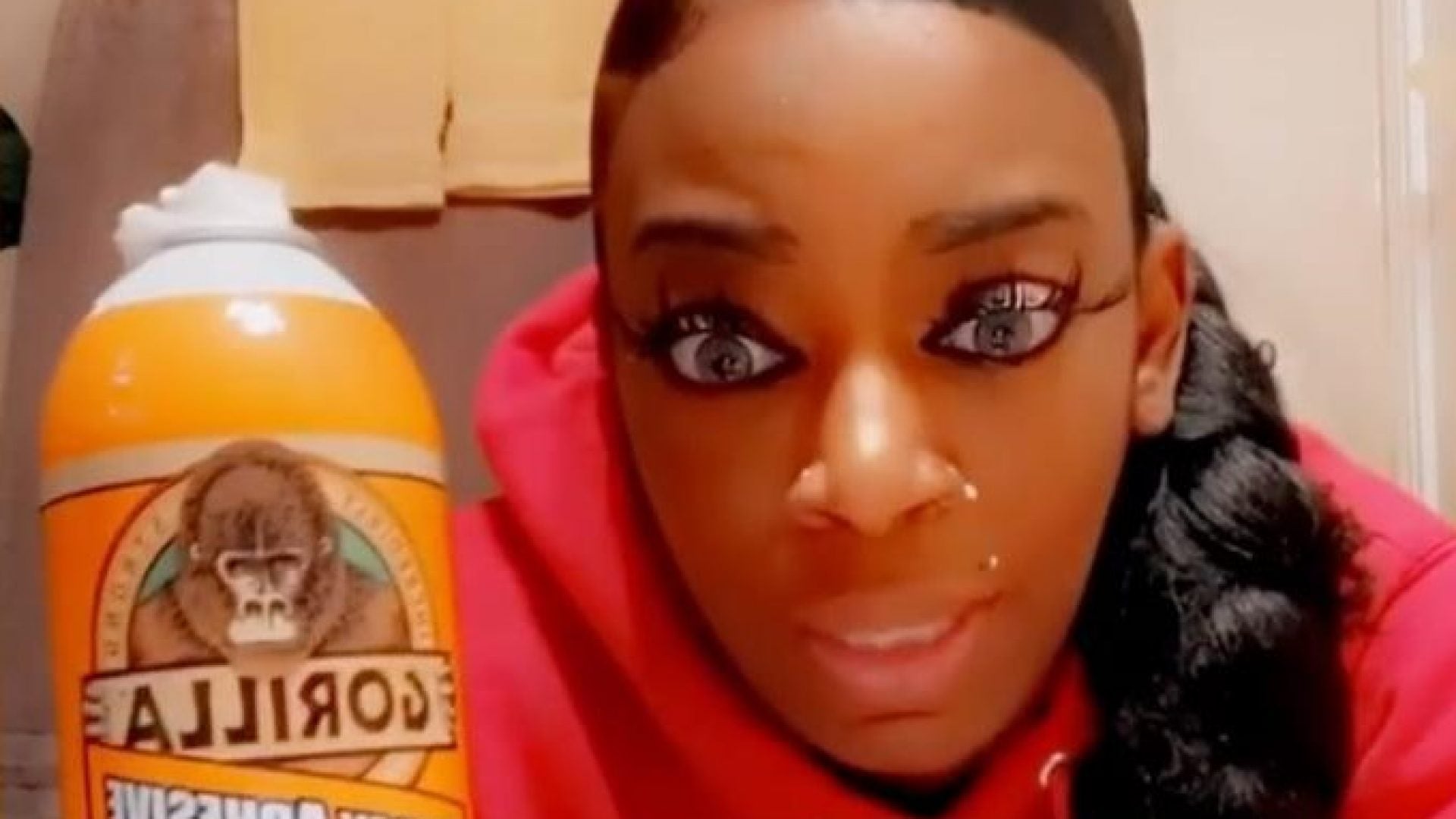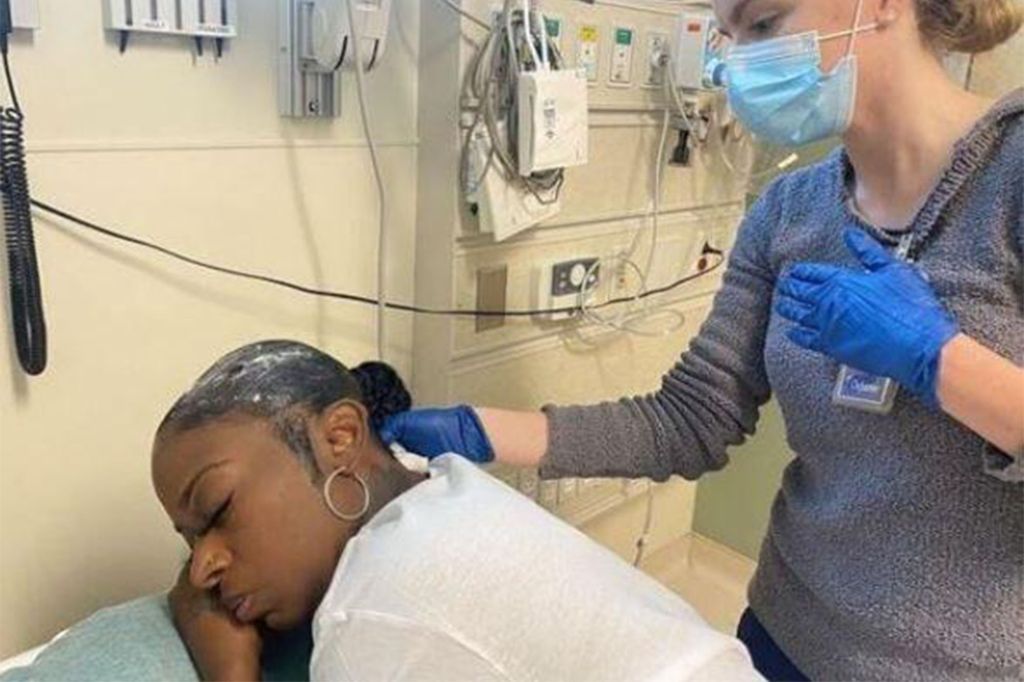
For days, Tessica Brown has been a trending topic in her own right. On Feb. 3, the 40-year-old Louisiana native took to social media for assistance with her hair. This, in and of itself, wasn’t abnormal. Black women have been using all the socials to become premium kitchen beauticians for a while now. Sites like YouTube, Pinterest and Instagram not only offer style inspiration, many sisters have become wildly successful offering tutorials on how to achieve different looks. I owe my ability to make my own units– with and without closures– and add highlights and lowlights to my hair to a weekend of YouTube playlists.
Yet, Tessica didn’t come to Tik Tok and Instagram in hopes of finding a new ‘do for the new year. She needed our help to get rid of an old one. After running out of Got2BGlue, Tessica decided to use Gorilla Glue spray to lay her edges and her style. Neither have moved in a month, so Tessica reached out to the global Black girl community for relief. After unsuccessful attempts with numerous suggestions, Tessica updated her social media accounts to let us know she’d gone to a local hospital to seek treatment. While everyone was enthralled, it was clear the situation was serious and Tessica needed medical intervention.

When I first heard about “the Gorilla Glue girl,” I was in the salon getting my latest set of bundles installed. I’d been in knotless braids for the past two months and was ready to go back to what has become my signature style. As my stylist braided down my hair, I marveled at how healthy it is and how much it’s grown. If it could talk, my hair would share stories of woe and abuse. My crowning glory would recount the numerous times chemical burns filled my scalp because I believed leaving my relaxer in for just five more minutes would get my hair “bone straight.” If my tresses could talk, they’d tell you how hard I had to work to grow my edges again after years of entirely too tight micro and box braids. My hair could tell the story of a Black girl trying to find her way in a world that said she needed a specific look to be accepted.
If we’re honest, most sisters have storied journeys with our hair. We can look back at pictures from days long gone and remember when we fried it, dyed it and laid it to the side. We can chronicle the styles that were cute but entirely too heavy on our heads and cared nothing for the health of our follicles. The relationship Black women have with our hair has always been a complicated one. Many of us tortured our hair into compliance because we were tired of being called “nappy-headed,” especially by folks who look like us. We endured the jokes and laughter of those who thought calling us “bald-headed” was funny. And who can forget the nights we cried because we weren’t the ones born with “good hair” (which always translated into being considered beautiful)?
Perhaps, all of that history is what joined so many of our hearts to Tessica’s plight. We may have never used an industrial product for styling purposes but we’ve done things to our hair and to ourselves we wished we hadn’t. We were endeared to her because we know what it’s like to be judged by the biggest mistake you’ve made and not be given the compassion and empathy necessary to move through its implications. All across social media, there are scores of people suggesting Tessica is attention seeking and deserves whatever she gets because “she should have known better.” In a world where hacks are celebrated and people become Internet sensations overnight for discovering new uses for old products, Tessica is villainized because her attempt resulted in failure.
Why is it so easy to dehumanize Black women when we make mistakes? Why must compassion for us be measured and mediated? How different would the response to Tessica be if she were White? We don’t have to wonder too long about the answers to these questions. We know them already. We know Black girls and women have to be perfect; there is no room for error. And when we mess up, we know it was nobody’s fault but our own. And we know we live in communities that won’t let us forget it, either.
I will never call Tessica “the Gorilla Glue girl,” she has a name. She has a story, a life, family and friends who love her. Like others, I’ve reached out to her to see how best to support her right now. She and her family have set up a GoFundMe to assist with the necessary medical expenses and other costs related to ending this ordeal. Still, I want to do more. I want sis to know she is surrounded by support, love and light as she navigates the private struggles of it all–the tears, fear and confusion we do not see. And in the depths of that, I want Tessica to know she is more than just this moment. We are always more than the worst thing we’ve done. We are, as Toni Morrison said, our best thing. The mistakes do not define us. They, simply, offer more polish and refining as we journey towards becoming what we were always meant to be.
